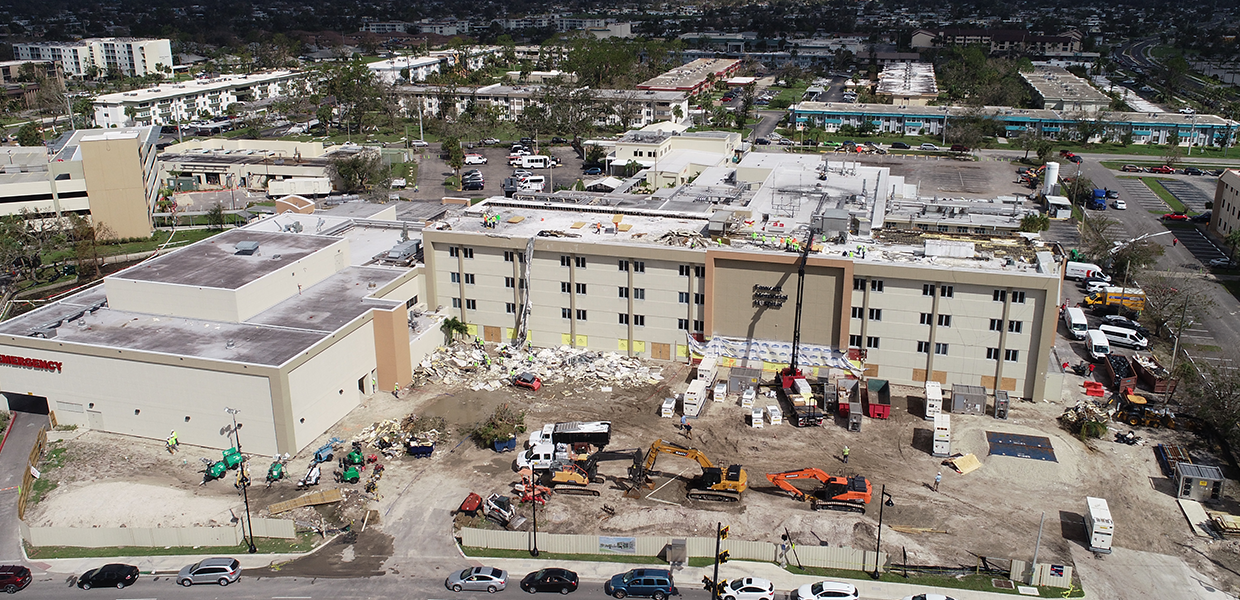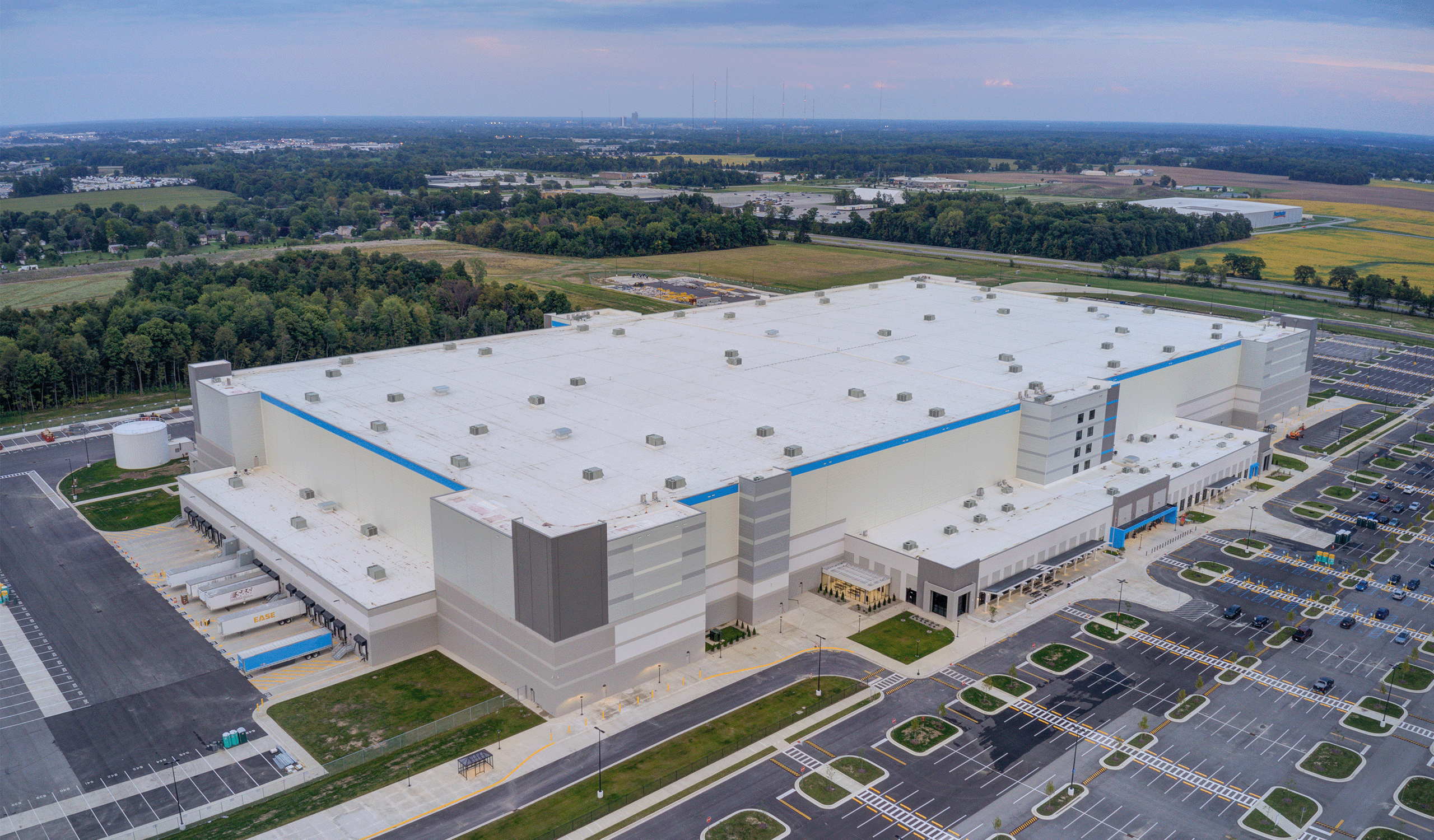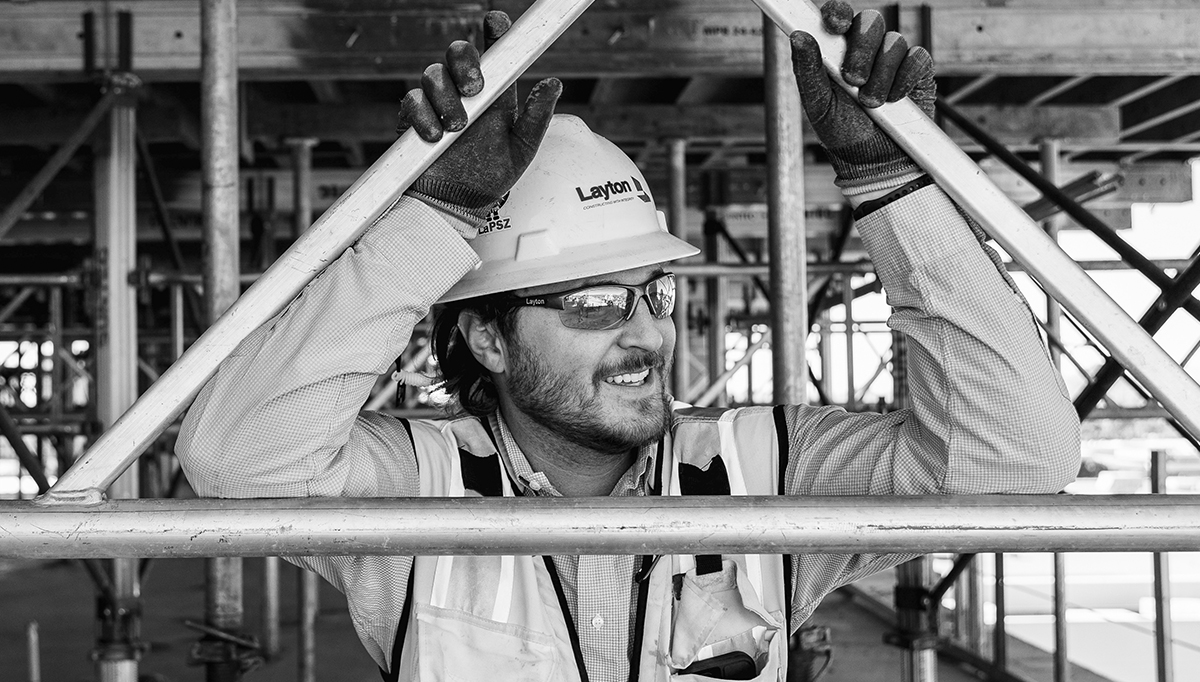While construction crews are known to withstand great physical challenges, the long hours, demanding schedules, and high-pressure environments can often take a toll on mental health. An often-overlooked reality, the stigma surrounding mental health in the construction industry has long left these issues unaddressed. Sparked from a discussion led by a small group of Layton staff, we’ve learned that a little vulnerability can have a big impact and create a sense of safety and support for those who are struggling.
An Unforgettable ‘Safety Minute’ as a Catalyst for Change
We’ve developed a culture of safety both on and off the site through our Safety 360° mindset, where our values of constructing with integrity meet predictability. The program fosters an all-encompassing view of safety, both physically and philosophically. As part of this initiative, before any meeting—on the jobsite or in the office (and regardless of who’s attending)—a Layton team member takes a moment to share a ‘safety minute’. A standard practice within Layton, these brief talks can highlight a near miss on the job or a personal experience to remind everyone the importance of our outlook on safety as a whole.
During a 100+ person all-hands last year within one of our business units, a brave team member utilized the safety moment to share his own struggles with mental health, and the steps he’s taken to seek help. His story created an immediate ripple effect, prompting a raw and unfiltered discussion among his peers around mental health where others shared their own experiences.
Organic Growth, Real Support
As more individuals found the courage to speak out and support one another, the conversation has evolved from a single moment of vulnerability to what we hope is becoming a more widespread cultural shift. Since the initial conversation, the business unit has responded with a series of events ranging from mental health workshops facilitated by professional experts to team building efforts that can help aid in social levels of comfortability amongst team members. The topics have spanned the spectrum of mental health, from anxiety and substance abuse to depression and suicidal ideation. All have fostered dynamic conversations among Layton staff—men and women genuinely interested in supporting one another and creating a space where they can add their own stories to the overall discussion.
People First
It’s important to note this progress occurred organically by employees—something that seems to be resonating more on the ground level as opposed to protocol style information sharing. Acknowledging this growth and continually seeking to do our part as an organization, it is the genuine nature of employees to support each other through difficult times that have seemed to yield higher results. Providing employees with internal support services amongst their colleagues is also helping to support a mindset of solidarity: no one needs to do this alone.
Addressing mental health in our industry begins with breaking the stigma surrounding it. Traditionally taboo in this male-dominated field, where perceived toughness and resilience are often prized above all else, discussions about mental health at Layton have begun to foster an environment of openness and support, where we’re wanting to build a healthier, happier workforce. It all starts with our people. By opening the door to transparent and honest conversations, we can create an environment where our workers feel supported. While physical safety on a jobsite will always be a priority for any construction company, the ever-growing attention to mental health is a widespread effort that we can all strive in to be better.
If you’re struggling, there’s help available.
Call or text 988, the Suicide & Crisis Lifeline,
for confidential support 24/7.




